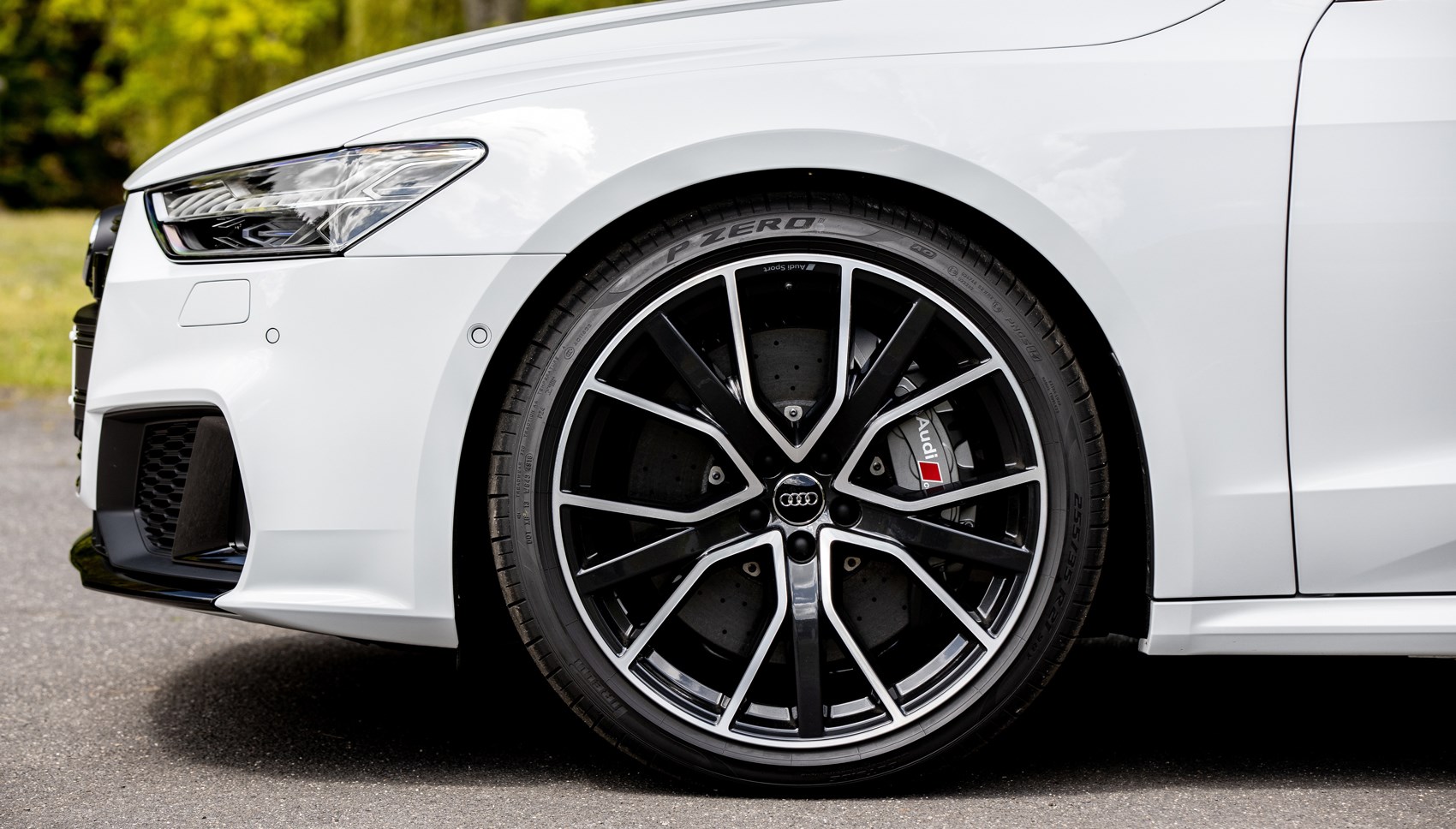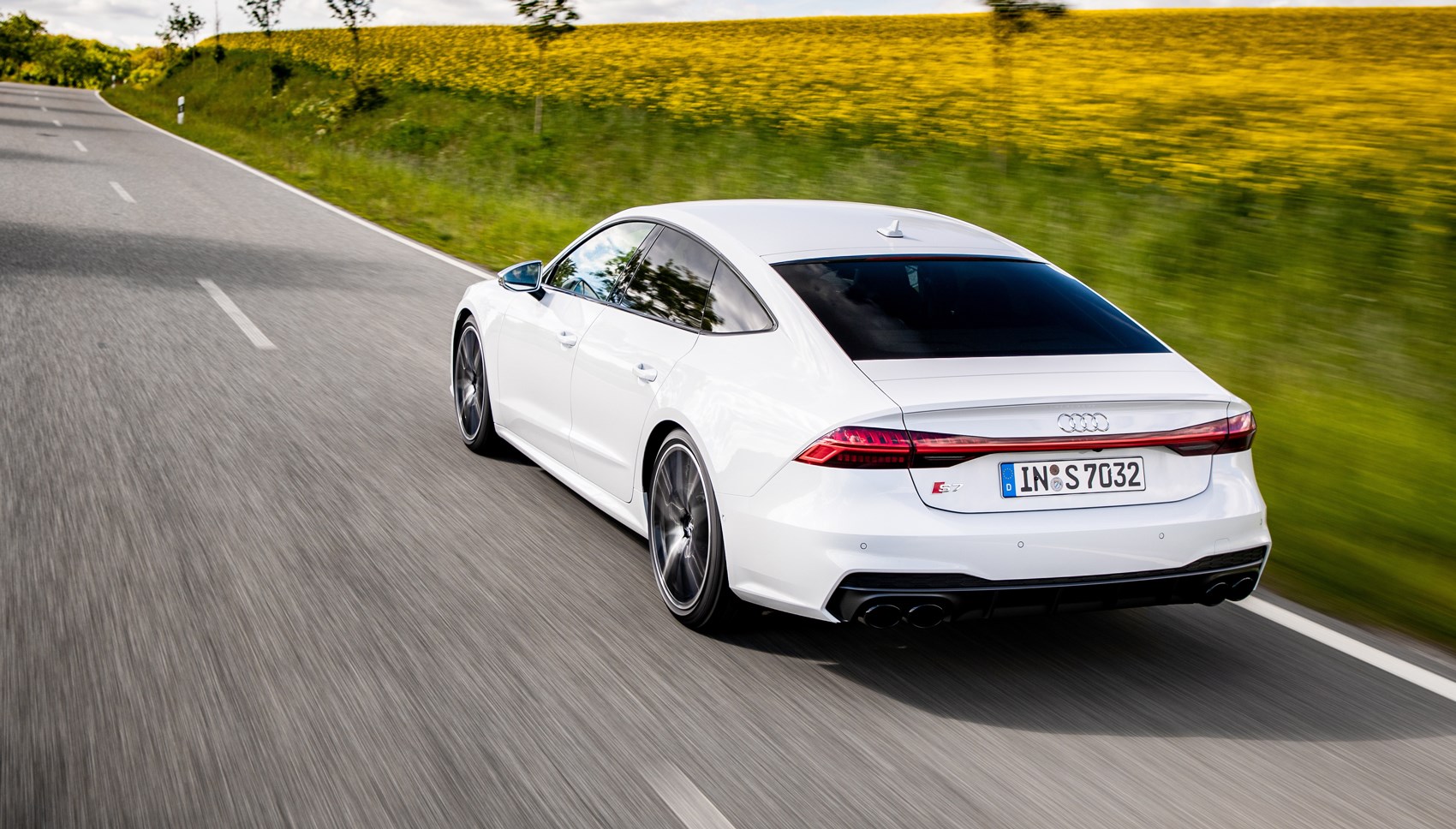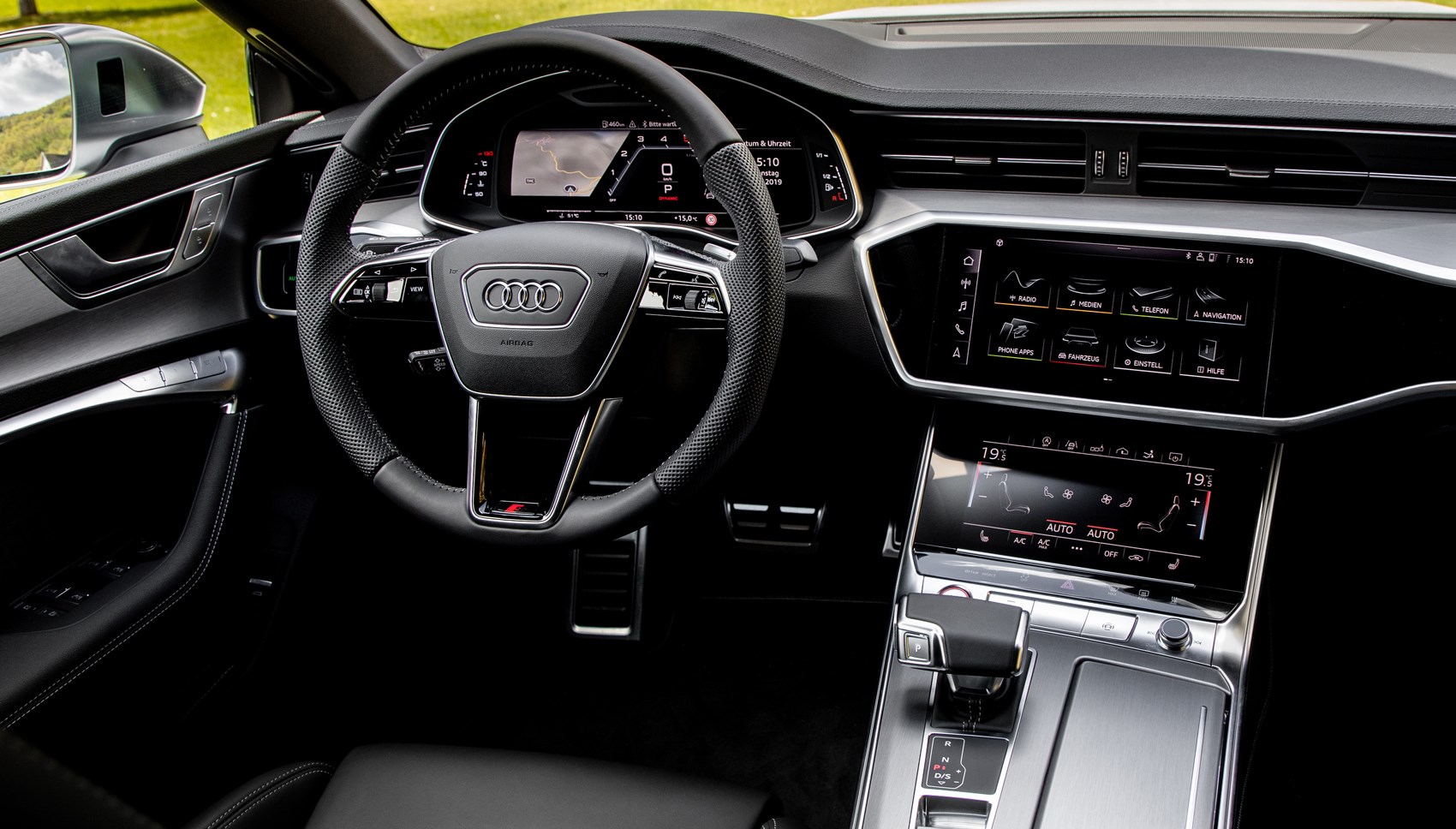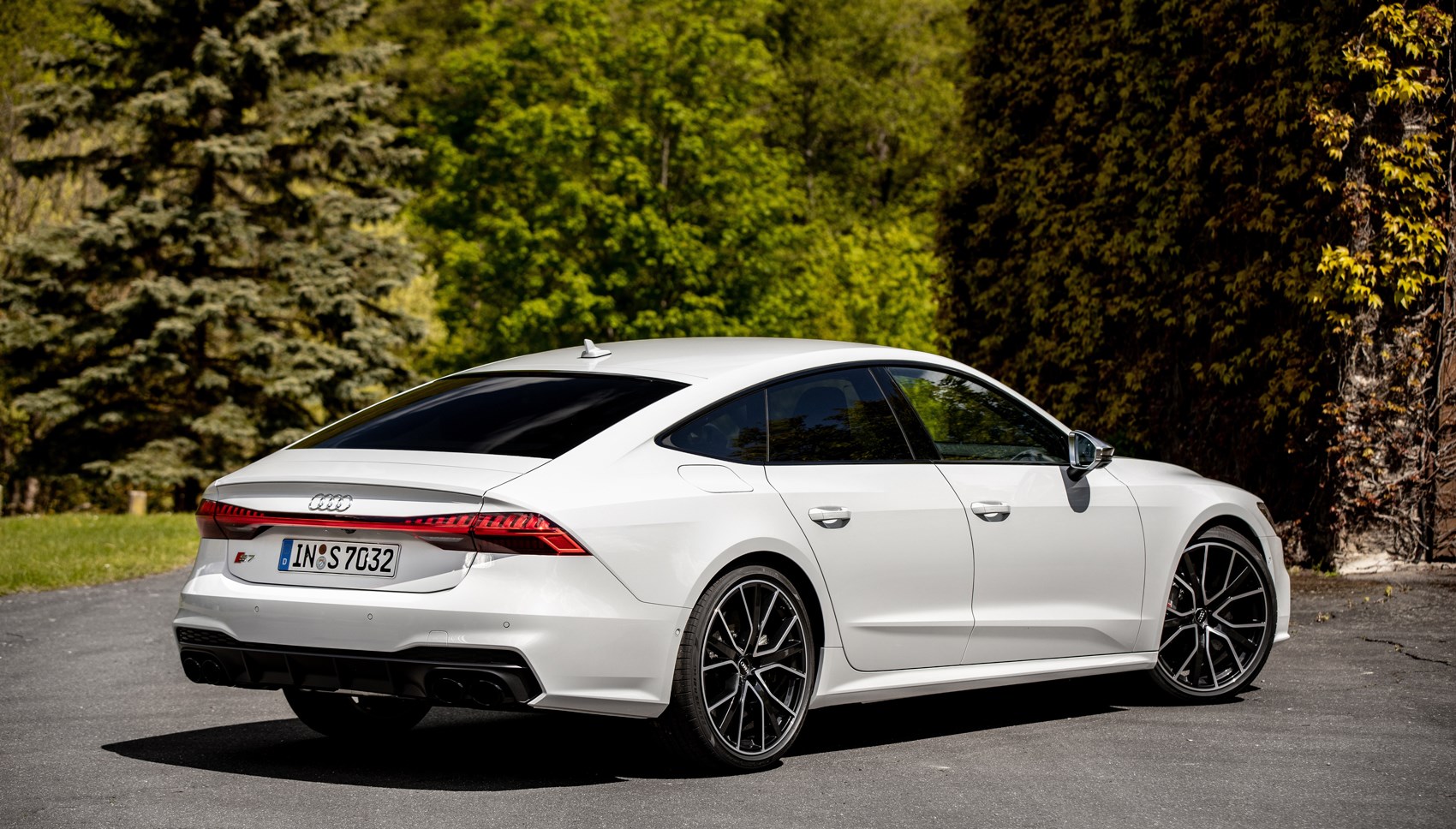► Audi S7 diesel driven
► A stealthy cruiser…
► …and a winning combo
Audi’s choice to replace its petrol V8 with mild-hybrid diesel V6 in performance S variants of the A6 and A7 looks uniformly negative on paper. This new car is less powerful and slower than the one it replaces and, while the economy has improved marginally, you won’t find Toyota engineers getting on the next plane to Ingolstadt to gain learnings for the new Prius.
But the German marque has form in this area – the first (and now current) SQ5 used a diesel engine and was all the more likable for it, likewise the current SQ7, which remains one of our favourite undercover performance cars on the market.
In fact we reckon the S7 TDI has been given a new character all of its own – a long-legged but rapid grand tourer that’s easier and cheaper to live with than the RS model. It’s made our list of the best diesel hybrids, because now it’s no longer just a less good version of the RS.
Is it an eight-cylinder diesel at least?
No. Powering the S7 is the 3.0-litre V6 shared with the new S6 and SQ5 – ostensibly the same unit as you’ll find in Audi cars badged 50 TDI, albeit with reinforcements to the pistons, crank, cylinder and cooling, plus a more powerful oil pump and injectors.
The 48v mild-hybrid system charges up a lithium ion battery in the boot – up to 8kW can be regenerated under braking – and allows for 40 seconds engine free coasting before firing up the engine again.

What we’re really interested in however is the little 7kW electric supercharger this subsystem powers. It accelerates to 70,000rpm in 250 milliseconds, aiding responsiveness and filling in the torque gap at low revs where there isn’t enough exhaust gas to stir the larger turbocharger.
Head-to-head, Audi says from a standing start this car will open up a 2.9 metre lead after 1.3 seconds of acceleration over an S7 without the tech. Tangible. It works in the real world too – the S7 doesn’t just feel fast but effortlessly so – you hardly sense any friction in the drivetrain after a press of the throttle as 516lb ft of torque is knocking on the door from 2500rpm. Consequently, it goes like a dropped anvil.
A diesel that responds like a petrol. Why not just use a petrol?
That’s a fair question and things get murkier still when you look at the figures on paper – the old S7 with its 4.0-litre V8 was 100bhp more powerful and half a second quicker from 0-62mph – new performance models are not normally slower than those they replace.
Thing is, while that sounds important in principal, in reality those numbers are largely irrelevant. Bear in mind this is the subtly fast S7, not the top-performance RS7, so it needs to be good at thundering down a motorway first and foremost, not impressing on an Alp. To that end the new engine’s torque figure trumps the old car’s 406lb ft, and the 35.8mpg it promises will mean a greater range and longer between fill ups. It’s less evocative than a hairy V8, but no less effective.

Audi highlights the Mercedes-AMG CLS 53 and BMW 640i Gran Turismo as key rivals – both use a thirstier six-cylinder petrol engine – and, while the Merc is more powerful and faster, the diesel Audi bests the BMW in both areas.
On the launch event we found time for a derestricted blast on the autobahn, which although not strictly relevant for the UK, did at least give us a sense of the car’s seemingly bottomless performance and unflustered ability to sit at three figure speeds with no issue at all. In short, it’s plenty fast enough for the UK. It even sounds good.
How does the Audi S7 drive?
Again, because this is an S but not an RS model, handling is important but it’s not the be-all-and-end-all. The Audi S7 can get away with being competent and planted without having to worry too much about being exciting and life-affirming.
In fairness though the big coupe is entertaining in the way that anything with masses of torque on tap and suitable rubber adhesion to make the most it is bound to be. You can pile into corners without worrying too much about washing out, then hold huge speed mid-bend before accelerating away. The Audi S7 is properly fire-and-forget.

Keeping things under control is standard issue permanent Quattro all-wheel drive with a 40:60 split, although up to 70% of power can be sent to the front and 85% to the rear when needs be. The suspension is dropped by 10mm to help hug the tarmac and if you want more waft there’s an air set-up available as an option.
You can also spec six-pot ceramic brakes to save 9kg a corner, plus a Quattro sport diff and all-wheel steering for enhanced stability. The latter can turn the rear wheels by up to 5 degrees, reducing turning circle by 1.1 metres. In town at least that helpfully masks one of the S7’s negative points – it’s a big car and feels every bit of it on a narrow road.
What else comes as standard?
The Audi S7’s equipment roster is largely the same as the standard car plus some nice extras like a bodykit, 20-inch wheels, super sports seats, Valcona leather and all-round parking sensors.
Inside you get the techy MMI Navigation high with its 10.1- and 8.6-screens, plus the Virtual cockpit display. This is framed by acres of piano black trim and brushed aluminium, with fine ash wood available as an option.

More generous yet is the Vorsprung edition, which adds 21-inch wheels, 360 degree camera, air suspension, Bang and Olufsen, all wheel steering, Quattro sport diff, and adaptive cruise.
Audi S7: verdict
We often hark on about the end of days for soul-stirring, multi-cylinder, naturally aspirated petrol engines but it’s a rare occasion to encounter a diesel worth missing. It’s so smooth and refined with devastatingly accessible power – it’ll be a genuine shame when such easily summoned torque is no longer viable.
There is, however, a sense that this car has been designed for German execs who need to charge up and down the autobahn all day at high speed without wanting to fill up at every pass of a service station. We’d also argue that, on the whole, Brits like their fast Audis big and brash – while continental petrolheads would de-badge an RS 6 so it looks like a two-wheel drive TDI, we’d de-badge a two-wheel drive TDI so people think it’s an RS 6.
So does this discrete but potent Audi S7 have any place in the UK market? Well, where previous S6 and S7 models have simply been less powerful, less exciting versions of the RS model, here is a genuinely alternative proposal. A quietly confident but easy-going grand tourer with a massive range and realistic running costs. We like.
Check out our Audi reviews